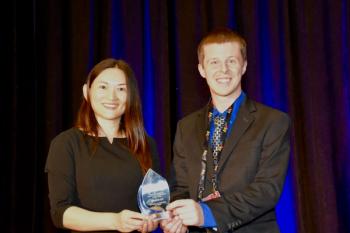
Investigating the Adoption of Raman Spectroscopy in Routine Oncology Workflows: A SciX Interview with Nick Stone, Part 3
In the final part of our interview with Nick Stone, he discusses standardizing Raman technology across multiple clinical centers, and what it means to him to be attending the SciX Conference as the recipient of the Charles Mann award.
The SciX 2024 Conference will take place in Raleigh, North Carolina, this year. As an emerging destination for healthcare and information technology industries, Raleigh’s inclusion this year as the host city for SciX is fitting.
At the conference, there will be quite a few talks dedicated to the impact spectroscopy is making in clinical analysis. Much of the focus will be on the latest research in the field as well as the technological innovations being made in spectroscopic instrumentation. These are topics that we’ve explored thus far in our video interview series with Dr. Nick Stone of the University of Exeter, who is this year’s recipient of the Charles Mann award.
Dr. Stone has made significant contributions to the field of Raman spectroscopy for cancer diagnostics, collaborating with clinicians to develop real-time, minimally invasive tools (1,2). His innovations include endoscopic Raman for early cancer detection, smart Raman needles, and spatially offset Raman spectroscopy (SORS) techniques for detecting buried lesions. He also pioneered surface enhanced spatially offset Raman spectroscopy (SESORS), utilizing nanoparticles for deep-tissue imaging (1,2).
In a recent collaborative study, Stone and colleagues tackled the challenge of transferring Raman spectroscopy data across clinical centers. They analyzed spectra from human esophageal tissue collected at three different locations using identical spectrometers. Following a standardized protocol, they classified 61 tissue samples into five pathologies (1,2). Their findings revealed no significant differences in model accuracy or log-loss across centers, demonstrating that data transferability can be achieved without complex computational corrections.
In the final part of our conversation with Stone, he answers the following questions:
- How can your findings help in standardizing Raman technology across different clinical centers?
- What does winning the Charles Mann award mean to you?
- What are you looking forward to most about the SciX Conference in Raleigh, North Carolina?
To view the rest of our coverage of the upcoming SciX 2024 Conference, click here:
References
- Wetzel, W. Investigating the Adoption of Raman Spectroscopy in Routine Oncology Workflows: A SciX Interview with Nick Stone, Part 1. Spectroscopy. Available at:
https://www.spectroscopyonline.com/view/investigating-the-adoption-of-raman-spectroscopy-in-routine-oncology-workflows-a-scix-interview-with-nick-stone-part-1 (accessed 2024-09-30). - Chasse, J. Raman-Based Oesophageal Tissue Classification and Modern Machine Learning in the Support of Multi-Center Clinical Diagnostics: An Interview with 2024 Charles Mann Award Winner Nick Stone. Spectroscopy. Available at:
https://www.spectroscopyonline.com/view/raman-based-oesophageal-tissue-classification-and-modern-machine-learning-in-the-support-of-multi-center-clinical-diagnostics-an-interview-with-2024-charles-mann-award-winner-nick-stone (accessed 2024-09-30).
Newsletter
Get essential updates on the latest spectroscopy technologies, regulatory standards, and best practices—subscribe today to Spectroscopy.




